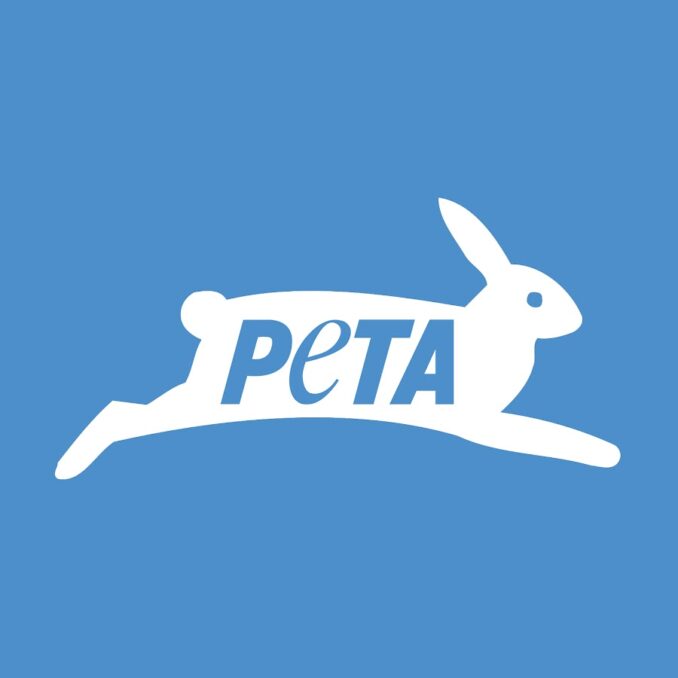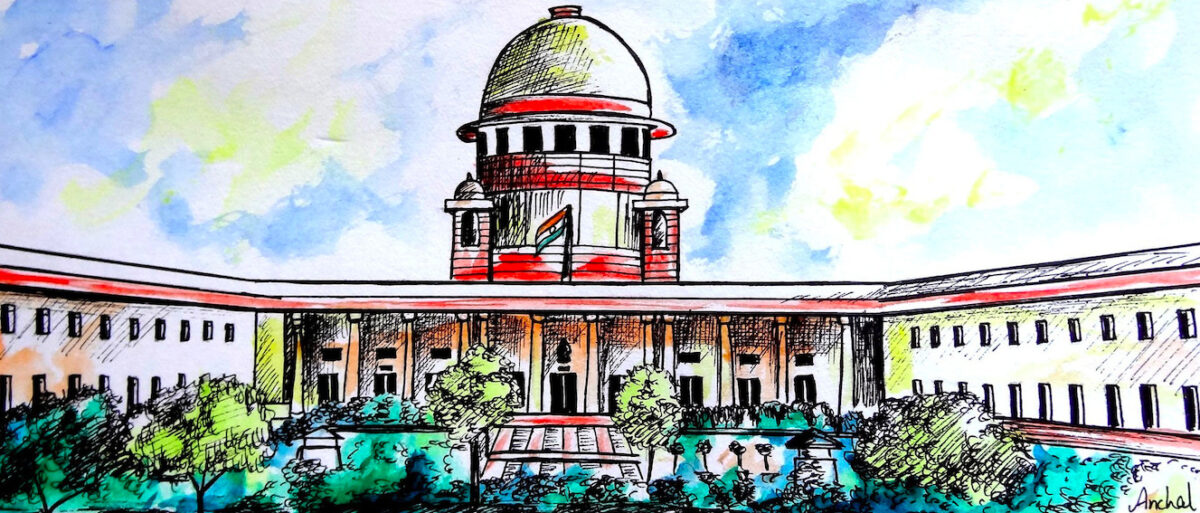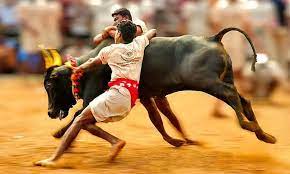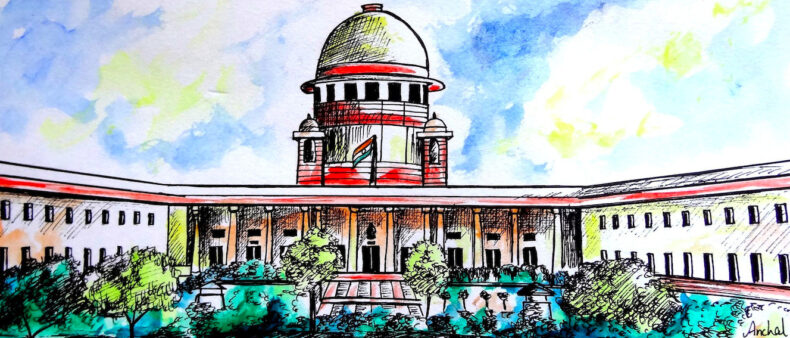Table of Contents
People for the Ethical Treatment of Animals (PETA), an animal rights organisation, has petitioned the Supreme Court for a review of its ruling from May 18 that upheld the legality of Tamil Nadu’s amendments to the Prevention of Cruelty to Animals Act (PCA Act), allowing the bovine sport known as Jallikattu. (State of Tamil Nadu v. PETA.)
According to the review plea, these “sports” abuse animals by using force, agitation, aggression, and pressure to cause them to flee or fight.
The petition further argued that these events, notably Jallikattu and bullock cart races, frequently result in catastrophic injuries and fatalities that impact both people and bulls, including competitors, spectators, and even young children.

What is the history of the issue PETA has raised?
A Constitution Bench of Justices KM Joseph, Ajay Rastogi, Aniruddha Bose, Hrishikesh Roy, and CT Ravikumar held in the decision that the PCA Act amendments made by the Tamil Nadu government were put in place to lessen the pain and suffering of cows while maintaining the sport.
The top court had also maintained the Karnataka and Maharashtra legislation permitting bull cart racing and Kambala.
In addition, the Court had stated that the legislation did not contravene Articles 51A(g) and 51A(h), and as a result, did not violate Articles 14 and 21 of the Indian Constitution.
Prior to this, in May 2014, the Supreme Court ruled that Jallikattu violated both the Prevention of Cruelty to Animals Act and the rights of the animals concerned.
The top court had ruled at the time, specifically with regard to the cultural component of the sport, that Jallikattu as it is now practised has never been a part of Tamil Nadu’s culture or history.
Consequently, in 2014, the Tamil Nadu Jallikattu Regulation Act of 2009 (TNJR Act), which controlled the practice, was repealed.
But in January 2016, the Central government published a revised notice that excluded bullock cart races and the Jallikattu festival from the application of the PCA Act. The Supreme Court eventually heard a challenge to that notice.
The Prevention of Cruelty to Animals (Tamil Nadu Amendment) Act of 2017 was later passed by the Tamil Nadu government.
These essentially made it possible for bull-taming sports like Jallikattu to exist.
The highest court upheld the notification and the revisions in May of this year after they were challenged.

What is Jallikattu?
A bull is thrown into a mob of spectators during the traditional event known as Jallikattu, and several spectators attempt to catch the bull by the big hump on its back with both arms. In an effort to halt the bull, participants hold the hump for as long as they can.
In the Indian state of Tamil Nadu, Jallikattu is generally conducted as part of the Pongal festivities on Mattu Pongal day, which takes place every January. The bull riders have to occasionally remove the flag from the horns of the bull.
The Supreme Court of India has banned the sport multiple times over the past several years due to several organizations petitioning for a ban. There have been incidences of damage and death related with the sport, both to the players and to the animals forced into it. A new rule was created in 2017 to allow the sport to continue however, there were protests from the public against the prohibition.













